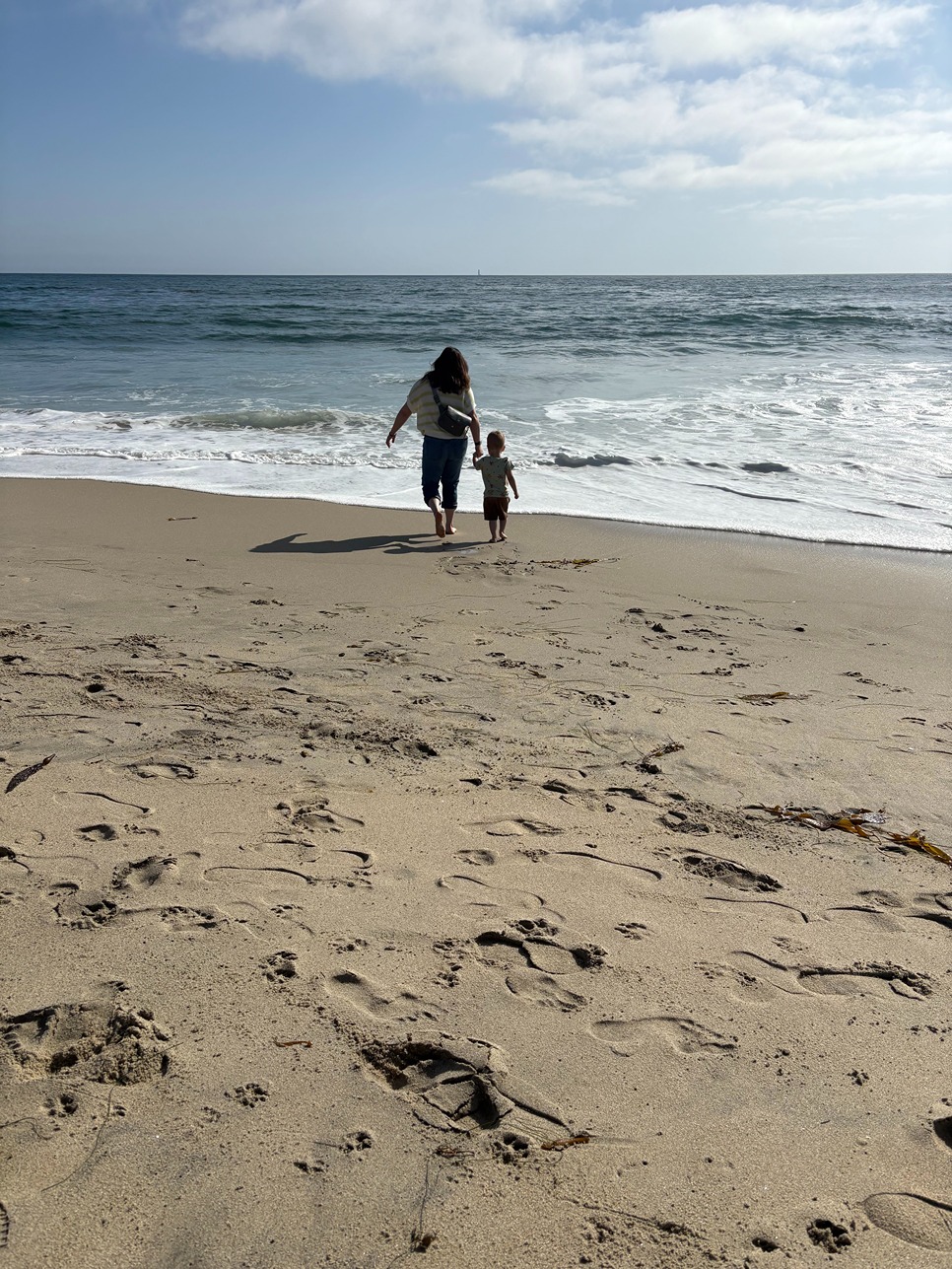If you’re writing your website, posting on socials, or doing… basically anything to market your business, you NEED to know the 5 stages of awareness in marketing.
What you don’t need, though?
A bland AF explanation with zero context for what to actually do with that information when you have it – which is why that’s exactly what you *won’t* find here.
The 5 Stages of Awareness In Marketing
The more you know about the clients you want to work with, what they want, and what they *really* want, the faster, easier, and more effective your marketing becomes.
At the end of the day, your marketing works best when it meets your ideal client in their current stage of change, and provides what they need to start moving toward a more actionable one.
Stage 1: Unaware
This person has a problem, but isn’t aware that they do. They’re some of the hardest people to target in your messaging, because they have to first come to terms with the problem, then start to think about solving it. In terms of stages of awareness, they have the furthest to go.
Examples:
- A business owner who hasn’t connected their lack of sales to their lack of online presence
- A busy parent constantly feeling overwhelmed and exhausted doesn’t connect it to a lack of boundaries and self-care in their daily routine.
How to Create Content For The Unaware Audience:
This type of audience needs educational content that introduces their problem in a way that feels relatable and insightful. Your tone should be non-judgmental and approachable—this isn’t about calling them out but gently helping them see the underlying issue.
Examples:
- Blog posts like “5 Signs Your Onboarding Process Might Be Turning Off Your Clients” that help readers start connecting the dots between their problem and THE problem
- Create light, engaging social media content that sparks curiosity, such as quizzes, infographics, or posts sharing common frustrations your audience might relate to
Because this group has the furthest to go before taking action, they’re the hardest to market to – so while you totally can create content for this group, it’s hard to get it in front of them (or make it effective).
Leverage blog posts, socials, and other content for this – not your core website pages (Home, About, Services, etc).
TL;DR:
While you can create content for an unaware audience, it’s challenging to make it effective and resource-efficient. Instead of investing heavily here, consider focusing your efforts on audiences further along in the awareness journey, where your impact is greater and conversions more likely.
Stage 2: Problem Aware
This person knows they have a problem but isn’t sure what to do about it. They feel the frustration of their issue and are starting to think about finding a solution but don’t yet know what their options are or how to move forward.
Examples:
- A startup founder knows their team struggles with communication and missed deadlines but doesn’t realize a project management tool could help
- A renter notices their energy bills are abnormally high every month but hasn’t considered energy-efficient upgrades or calling an expert to assess the issue
At this stage, your goal isn’t to sell them a specific solution yet—it’s to help them clearly define their problem and make them feel seen. When you can do this effectively, they’ll start associating you with solving that problem.
How To Create Content For The Problem Aware Audience
At this stage, your audience is actively feeling the pain of their problem. They need content that acknowledges and validates their struggles while hinting that solutions are available. Your tone should be empathetic and encouraging—this is the perfect opportunity to build trust and position yourself as a helpful guide.
- Educational Blog Posts: Write articles that address their specific pain points
- Social Media Content: Share relatable posts about common frustrations your audience faces
- Lead Magnets: Offer downloadable resources like checklists or guides (bonus: this gets them onto your email list!)
Creating content for problem-aware clients is wayyy more efficient than targeting the unaware stage. Here, people are actively looking for clarity and reassurance, making them more likely to engage with educational resources that validate their frustrations.
Stage 3: Solution Aware
This person knows there are solutions to their problem and is beginning to explore their options. They’ve done some research or have a general understanding of what’s out there but haven’t decided what approach or provider is right for them yet.
Of the 5 stages of awareness in marketing, THIS is where your website starts to come in.
Examples:
- A business owner struggling with poor sales has read about SEO and email marketing but isn’t sure which would make the biggest impact on their website’s performance.
- A homeowner with frequent plumbing issues knows they need to call a professional but is still comparing different local plumbers and their offerings (why am I choosing this example as the hill to die on? Idk, but it doesn’t *not* work)
At this stage, your goal isn’t just to educate—it’s to build trust and establish authority. You want to position yourself as the best guide to help them navigate their options and feel confident about choosing the right solution.
How to Create Content for the Solution-Aware Audience
At this stage, your audience needs clarity about the pros and cons of different solutions and reassurance that you understand their specific situation. Your tone should be authoritative yet approachable—think of yourself as their trusted advisor, their favorite teacher, their new educational big sister.
- Educational Blog Posts: Focus on content that helps them evaluate options, like “SEO vs. Email Marketing: Which One Is Right for Your Business?” or “5 Questions to Ask Before Hiring a Plumber.”
- Comparison Guides: Blog posts, lead magnets, or other resources that pit solutions against each other to help people choose the right one – like my guide to picking between Showit & Squarespace, or Flodesk & Kit
- Testimonials and Case Studies: Share real-world examples of how you’ve helped people solve similar problems to start planting seeds that *you’re* the solution (like having a highly stalkable portfolio)
TL;DR:
Creating content for solution-aware clients is one of the most effective ways to position yourself as the expert they need. These people are motivated AF —they just need the right nudge to move forward and pick you as their solution.
Stage 4: Product Aware
This person knows what type of solution they need and is now researching specific providers or products to decide which is the best fit. They’ve likely narrowed down their options and are comparing details like pricing, reviews, and unique approaches.
Examples:
- A business owner has found their top 2 candidates for a website designer and is now stalking their socials and portfolio to decide who to reach out to first
- A parent looking for a local daycare has shortlisted a few options and is reviewing their policies, safety measures, and testimonials to figure out where to tour
At this stage, your goal is to differentiate yourself from your competitors and demonstrate why you’re the ideal choice. These potential clients are close to making a decision—they just need reassurance that you’re the right fit.
How to Create Content for the Product-Aware Audience
At this stage, your audience is looking for specifics about what you offer, how it works, and why you’re the best option. Your tone should be confident, clear, and reassuring—this is where you show that you’re the expert they’ve been searching for.
- Services Page: Create a detailed, well-organized page that explains your process, pricing, and what makes you unique. Highlight benefits and outcomes, not just features!
- Social Proof: Use testimonials, reviews, and case studies to show real-world results and build trust
- FAQs: Address common questions or concerns directly on your website, such as “What happens during our first session?” or “How long does it take to see results?”
- Clear Calls-to-Action (CTAs): Make it SO INCREDIBLY EASY for them to take the next step, whether it’s scheduling a consultation, filling out an inquiry form, or calling you directly
TL;DR:
Creating content for product-aware clients is highly effective because these people are already interested in taking action. They just need a clear picture of why your approach, process, or offering is the best match for their needs. DO NOT HOLD BACK HERE – go seal the damn deal!
Stage 5: Most Aware
This person knows they want to work with you or buy your product—they just need to take the final step. They’ve already made up their mind but might be looking for a last bit of reassurance, like a nudge of encouragement or confirmation that they’re making the right choice.
Examples:
- A business owner has decided they want to hire you as their designer because they love your portfolio and messaging but needs to confirm pricing or availability before hiring you (not to say I told you so, but this is why I say to always list your prices)
- A bride/groom-to-be knows they want a specific wedding planner after seeing their testimonials and styled shoots, but hesitates to send the inquiry form because of nerves or timing
How To Create Content For The Most Aware Audience
At this stage, your audience doesn’t need convincing – they just need clarity and ease of access. Your tone should be confident, encouraging, and welcoming. Make it feel as simple and rewarding as possible for them to take the next step, and make it incredibly clear what that next step is.
Examples:
- Booking Pages: Have a straightforward, user-friendly inquiry form or booking system that’s easy to navigate. Include details about what happens next after they reach out.
- Encouraging CTAs: Use action-oriented language like “Inquire Now” or “Book A Call” to make them feel confident in reaching out.
- Guarantees and Reassurance: Include things like refund policies, satisfaction guarantees, or “Here’s What to Expect” sections to eliminate last-minute doubts.
- Social Proof: Continue reinforcing their decision with testimonials, trust badges (e.g., certifications or awards), or success stories prominently displayed.
TL;DR:
Of alllll of the 5 stages of awareness in marketing, creating content for the most aware clients is one of the easiest and highest-ROI marketing efforts. These are the people who are ready to take action – they literally just need you to tell them how, so do.
Leveraging The 5 Stages of Awareness In Marketing
One of theeee best ways to save time and get more out of your marketing is to tailor your efforts based on where your audience is in their stage of awareness.
People who find you randomly on social media are often in lower stages of awareness, while those who specifically search for your solution (like through Google or referrals) tend to be further along.
When you match your content to your audience’s context, you spend less time creating and get more results.
How To *Actually Use* The 5 Stages of Awareness In Marketing
- Save the educational, informational content for socials/blogs and encourage people to take the relationship to your website or email list
- Focus your website and email list on your problem/solution aware audience
- Be consistent and remember you can’t make people do anything. You can, however, offer them the tools and information that may help them move along the stages of awareness by themselves
Want some help doing it?
This is my whole thing – and I’m absolutely your girl. Stalk my (SEO-friendly, always audience-focused) website copywriting services here!






